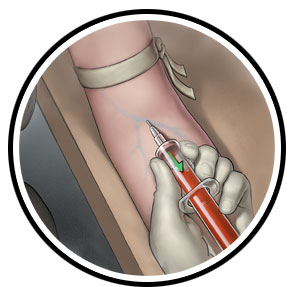What you should know
Risks for transmission
- Hepatitis C can be contracted from sharing contaminated needles and equipment for snorting, inhaling or preparing an injection.
- Having unprotected sex when blood is present
- Having sex with someone who is HCV positive
- It can be transmitted from the mother to the baby during pregnancy or delivery
- It can be transmitted when getting a tattoo or a body piercing with unsterilized equipment
- Had a blood transfusion prior to 1992
Symptoms
Acute
- Fatigue
- Decreased appetite, weight loss
- Nausea
- Flu-like symptoms
- Jaundice
- Rash
- Dark-coloured urine and light or clay-coloured stools
Chronic Infection
- Jaundice
- Swelling of the abdomen
- Blood in stools
- Blood in vomit
- Sleep disturbance
- Depression
- Weight loss
- Itchy skin
- Brain disease
Prevention
- Use a condom when having sex
- Don’t share contaminated needles and other drug materials
- Reduce the number of sexual partners
- Get tattoos and piercings done at well-known tattoo parlours with clear safety profiles
Testing
- Testing is performed by bloodwork

Treatment
- Treatment is complex. There are several drug combinations that have been approved by Health Canada for people with hepatitis C.
- Other goals are to prevent progression of the liver disease
Complications
- People can be re-infected.
- It can lead to chronic disease and liver cancer.

